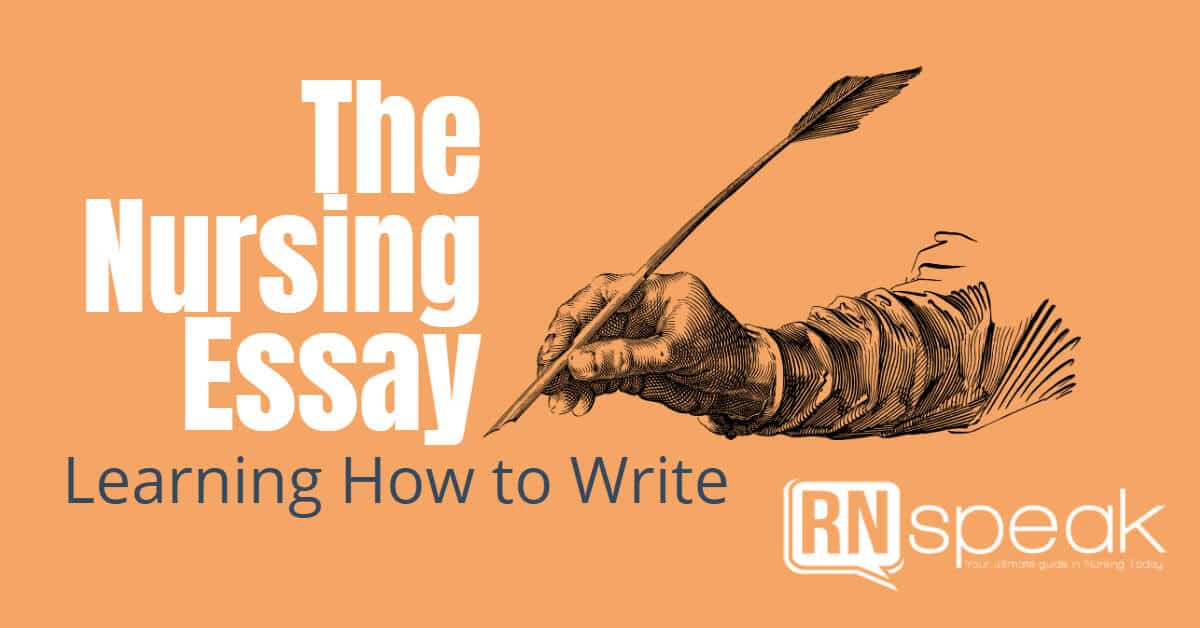Writing is an important development of humankind, which started during ancient times. It is a graphic representation of various languages of learning. The product from the application of scientific knowledge in information collection, communication, dissemination, and data retrieval technology.
In the nursing history, nurse writers emerged during the first world war as writing became their weaponry to open the window of insights about the nature of nursing and the impact of warfare (Hallett, 2016). Nurse writers were created when nurses started to speak the language of nursing, a voice that echoed to a wider distance.
When nurse theorists’ and their work begun publishing to indoctrinate the people and elevate the nurses into a profession that can be trusted, writing became a useful avenue for nurses to educate the society by gaining affordable access to medical knowledge, health awareness, and enlightenment to health-related issues concerning the public.
Who can write?
Anyone can write, but not everyone can become a writer. A nurse writer is a nursing professional with a passion for writing to educate people about health care issues. They must have a strong foundation of knowledge obtained from several years of experience in the academe, hospital, community, institution, and company to provide guidance and personal knowledge in medical writing.
Writings are the product of knowledge, education, experience, objectivity, and expertise. These specialized knowledge, skills, and training can be translated into a form of writing material that can be educative, informational, meaningful, and helpful to nurse practitioners and the society it serves.
Specialized courses in writing and publication are a must for a nurse writer to enter the world of writing. Nurse writers should have a strong foundation in grammar, spelling, and punctuation. Anti-plagiarism requires nurses’ knowledge of writing styles and referencing. They are skilled communicators who should have some form of writing charisma to attracts readers and make people read their works. A nurse must be a wide reader, as someone who knows how to write must know how to read as well.
Start the Passion by Writing a Nursing Essay
A nursing essay is a piece of writing to convey the nurse writer’s perspective, point of view, and story. It is the outline of the writer’s experience, knowledge, and expertise in the practice of nursing. Writing can be structured as formal or informal in the form of a story, documentary, research presentation, or article. Writings that are academic, intellectual, and poised relevant topics in nursing and health currents trends are generally formal. While informal writings are more personal with humorous elements.
“Exagium” meaning to present one’s case, is the Latin word of essay. Wherefore, a nursing essay writing is a presentation of a piece of writing about the writer’s side of argument and discussions acquired in the nursing practice.
Harvard College Writing Center (2020) defines an academic essay as means of fashioning a coherent set of ideas into an argument presented in an order that makes the most sense and comprehensible to the readers or “reader’s logic.”
Types and Format of Nursing Essay
Nursing essay focuses on issues and topics concerning health care, nurse practitioners, and patient-centered care. Essays can be written in the form of the following types, according to Curtin University* (2015):
- Descriptive*
- Analytical*
- Argumentative*
- Review*
- Exploratory*
- Synoptic*
- Investigatory
- Explanatory
- Instructions
- Message
- Cautionary advice or notice
Parts of Academic Essay
A nursing essay is a theoretical framework composed of three structural components such as:
1. Introduction
The title and introduction are the most difficult parts in writing an essay. As the old saying says “starting anything is so hard”. An introduction is a form of statement which presents an argument that gives the reader an idea of what the writing is all about, the things they are about to learn, and where they are going to while reading the essay. An introduction should be catchy and engaging to attracts readers. In the introduction, the writer is introducing a new idea.
2. Body
The middle part of the essay is the Body, the section that provides shreds of evidence used to prove, persuade, and convince the readers in accepting the writer’s point of view, perspectives, and its validity. The statements written in the body are the supporting pieces of evidence to prove your declarations and arguments written in the introductory part of your essay. Proofs are scientific basis gathered from the evidence-based practice, best practices, and the works and knowledge of other writers, researchers, and theorists. There are some legalities we need to observe in writing such as intellectual property rights, intellectual theft, and anti-plagiarism.
3. Conclusion and Suggestion
Writing a conclusion is not as easy as saying goodbye. A conclusion recapitulates and summarizes the entire writings’ content and findings. It should lead to learning and realization on the part of the readers. A nursing essay can be ended with a suggestion as well.
5 Step Process in Writing Nursing Essay
There are no difficult rough roads for a pathway guided with directions. The following are guidelines in writing a good nursing essay strategically:
1. Identify or develop your topic.
- Explore background information
- Formulate a criterion of a good topic
- Form a writing outline
- Formulate a provisional statement
- Write an introduction
2. Gather relevant data.
- Be a wide reader
- Conduct a research
- Taking down important critical notes
- Utilized scholarly sources and evidenced-based practice materials
- Organize data and information
- Reformulate statement (introduction should be supported by the pieces of evidence written in the body of your nursing essay)
3. Write the middle paragraphs (Body content) of your essay.
- Outline proof of arguments
- Integrate research evidence with properly formatted citations and references
- Create paragraphs of statements
4. Write a conclusion and/or suggestion.
- Summary and recapitulation
- Findings and evaluation
- Suggestion for future studies and writings
5. Edit and proofread.
- Proofread
- Edit and review
- Revision as needed
- Check for outline corrections
- Check for grammatical errors and English structural mistakes
- Check for plagiarism and stylistic issues
When you write an essay you are making a case for the validity of a particular point of view, analysis, interpretation, or set of facts or procedures. Careful selection, critical evaluation, analysis, comparative study, organization, and presentation of facts should have scientific basis formed from evidence-based practice.
Characteristics of a Good Nursing Essay
When writing a nursing essay for different target audiences, the nurse often relies on their expertise and from experiences shared by colleagues to create engaging academic writing, conveys emotions and to establish connections among readers.
The following are characteristics of a good nursing essay:
- Clear
- Concise
- Follows specific language
- Specific
- Detailed
- Direct to the point
- Accurate
- Informative
- Educative
- Intelligible (comprehensible and self-explanatory)
- patient-care centered
- Allows continuous patient care and safety
Importance of Writing to Writers
Writing improves five competencies which include: writing skills, reading comprehension, listening comprehension, information literacy, and teaching information literacy.
Curtin University (2015) added the development and practice of transferable skills which are beneficial for both nursing students and nurses in writing a professional role. These transferable skills are the following:
- Reading and note-making
- Critical thinking and analysis
- Organizing ideas
- Arguing a case
- Communicating effectively with a reader
The acquisition of these skills from writing can eventually lead to the rise of new breeds of nurse researchers and nursing theorists.
Topics and issues in nursing and health care will never be antediluvian, it will continue to grow and evolve, and nurse writing is a promising field for good candidates and passionate. A nurse can write for academic papers and dissertations which may have grants from the academe, hospital, or institution. They can also work as freelancers for medical journals, health-related publications, blog contents and educational websites. Nurses may put up writing business as well while working part-time or work from home.
To all aspiring nurse writers and for writers who want to advance their writing careers — writing and communication skills must be integrated with expertise along with a sense of compassion and empathy. Writing is the product of intellectual works and creativity, put your heart into writing and you will create life.
“Writing requires time, focus, patience and practice.”
References
- Hallet, C.E. (2016). Nurse Writers of the Great War (Nursing History and Humanities) 1st Edition. Manchester University Press.
- Harvard College Writing Center. (2020). Essay Structure. Retrieved on 19 September, 2020 from https://writingcenter.fas.harvard.edu/pages/essay-structure
- Curtin University. (2015). What is an Essay? Retrieved on 17 September 2020 from http://studyskills.curtin.edu.au/essays/introduction/what-is-an-essay/








